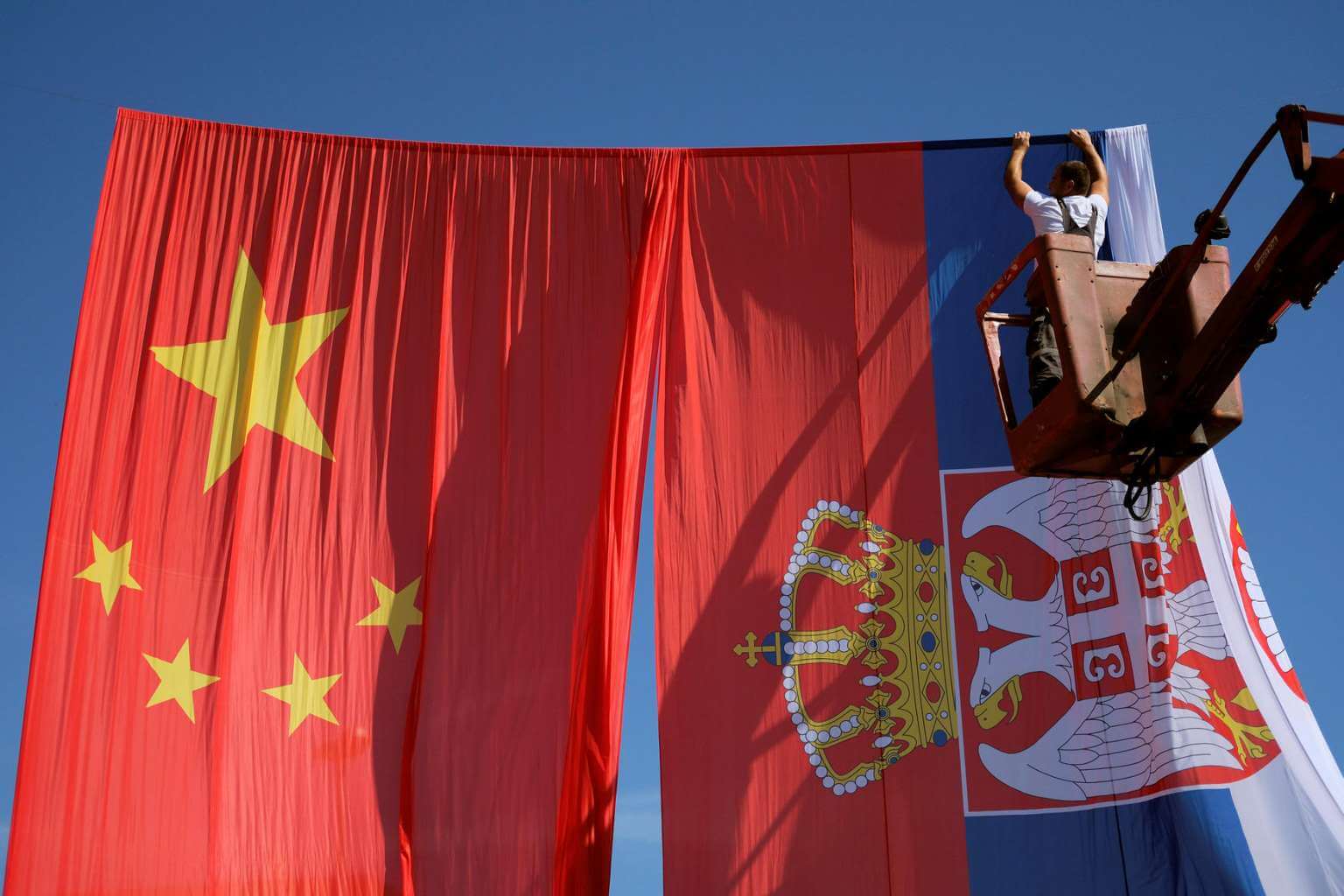When it comes to the relationship that Serbia has towards the most powerful countries in the world, it is often pointed out that there is alleged division of Serbia between the West and East, European perspective and ties with the United States (US) on one side and close relations between Serbia and Russia on the other. In this conversation, however, one should not neglect the relationship between Serbia and the People’s Republic of China, and the growing interest of the most populous country in the world for the region where Serbia is located.
Serbia and China historically are connected by the legacy of communism, that is, socialism as a form of socio-political order. Then, as it often pointed out, China is one of the two permanent members of the United Nations Security Council that did not recognise the unilaterally declared independence of Kosovo. On the other hand, Serbia has openly expressed its position in favor of the Chinese side in the territorial disputes that China has in the South China Sea, as well as on the territory of Tibet and Xinjiang. Four years ago, Belgrade hosted the 16 + 1 Summit, now the traditional way of cooperation between China and the countries of Eastern and Central Europe, which once a year brings together the highest officials of these countries. In addition to meetings in the multilateral format, Chinese leader Xi Jinping visited Serbia several times; while return visits to Beijing were always followed with great expectations. The establishment of the Office for Cooperation with Russia and China, headed by former Serbian President Tomislav Nikolic has further strengthened political ties.
The increased presence of China in the region is welcomed by both politicians and the general public. Serbia, it stands out, is the main partner of China in the Western Balkans. In addition to the political support that Serbia has received from China in the field of international relations, there has been an increase in investments coming from China to Serbia. Serbia is covered by the Chinese initiative One Belt One Road (OBOR) but bilateral co-operation between the two countries has been established before it; Serbia and China sign the “Agreement on Economic and Technical Cooperation in the Field of Infrastructure”. The later results of the agreement are reflected in the infrastructure investments that led to the construction of a Chinese-Serbian friendship bridge over the Danube River and the beginning of a railroad construction that will connect Belgrade and Budapest and halve the journey between the two capitals.
China’s affinity has also been achieved by the increased presence of its companies (that are state-owned). The Chinese company Hesteel (from the Chinese province of Hebei) took over the steelmaker in Smederevo and started production after several years of uncertain future of the factory. The presence of Chinese companies in other branches of the economy, from information technology, the machinery industry to the production of tires, has also increased. The latest in a series of major investments is the signing of a contract with Chinese company Shandong Linglong on the construction of a tire factory for vehicles in Zrenjanin. In addition to this signed contract, in cooperation with Chinese contractors, the construction of the highway connecting Belgrade with the Bar (Montenegro) should be done, as well as the potential takeover of another large system in the crisis, the Mining and Smelting Combine (RTB) Bor, but also interest of Chinese companies to open industrial parks on the territory of Serbia. Investments lead to partial rebuilding of the ruined economy, especially in smaller areas in Serbia, and in this way China gets positive ratings in the wider public.
Although there has been an increase in the presence of Chinese capital (more than $ 6 billion)[1], it is interesting that this is not foreign direct investment. The largest percentage is the loans and borrowings that Serbia takes from China and Chinese banks. China provides loans with low interest rates and a long repayment period[2]. Serbia has turned to financial instruments that provide capital inflows from China because it comes under better conditions than loans and borrowings from international financial organizations such as the World Bank[3]. Also, unlike the European Union or the United States, when giving loans, Chinese partners do not set political conditions regarding the movement towards a particular concept, such as the rule of law[4]. Providing this type of assistance is more focused on realizing the Chinese interest. China in turn gets the status of one of the most important partners of the state located at the very border with the European Union and pretends to become a part of it in the future.
It seems that China has arrived in Serbia and intends to stay there. On the other hand, the Serbian political elite, headed by the President of Serbia, intensively works to further improve relations between the two countries, calling this attitude a “steel friendship”[5]; stressing that China in Serbia has found an environment in which it can feel welcome. Further friendship between the two countries will be developed on already existing political ties, on relations between the Serbian economy and Chinese investors, as well as on future joint political and economic projects.
It remains only to look at the results of this friendship. Namely, there is a fear in the West that with such Chinese presence, the Western Balkan countries will become “Trojan horses”[6] that will help bring the China to the West and the western economies. However, for now, the impression remains that the relationship between Serbia and China has never been more intense and better and will arise it to an even higher level in the future.
This text was written in the framework of the project “Comparative analysis of the approach to China: V4 + and One Belt One Road” implemented by BFPE in cooperation with Prague Security Studies Institute (Czech Republic), Institute of Asian Studies (Slovakia), HAS Center for Economic and Regional Studies, Institute of World Economics (Hungary) and Center for International Relations(Poland).
The International Visegrad Fund (IVF) supports the project.
[1] Filip Rudić, Chinese Company Plans $1bn Serbian Tyre Factory, Report (23.08.2018.)
[2] Christopher Hartwell, Katarzyna Sidlo, Saradnja Srbije sa Kinom, Evropskom unijom, Rusijom i Sjedinjenim Američkim Državama, str. 23 (27.08.2018.)
[3] Matthew Karnitsching, Beijing’s Balkan backdoor (23.08.2018.)
[4] Christopher Hartwell, Katarzyna Sidlo, Saradnja Srbije sa Kinom, Evropskom unijom, Rusijom i Sjedinjenim Američkim Državama, str. 23 (27.08.2018.)
[5] TANJUG, Vucic: Serbia-China friendship made of steel (23.08.2018.)
[6] Johannes Hahn, EU Confidential, Beware Chinese Trojan horses in the Balkans, EU warns













